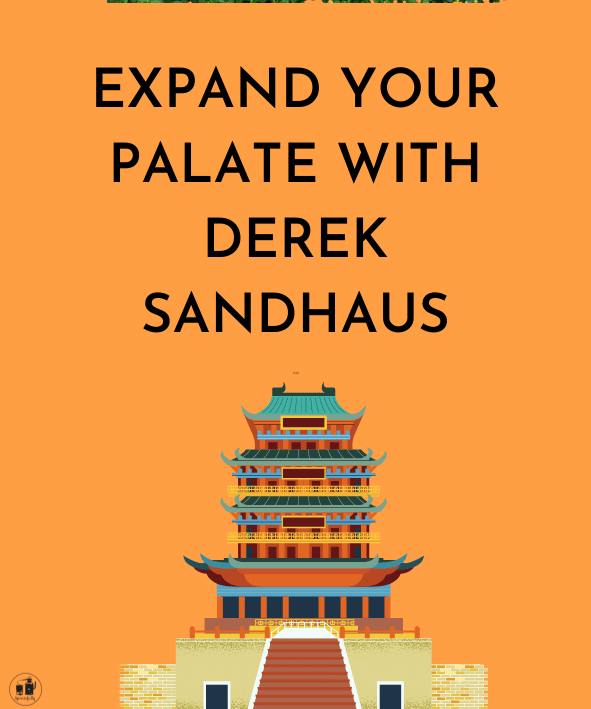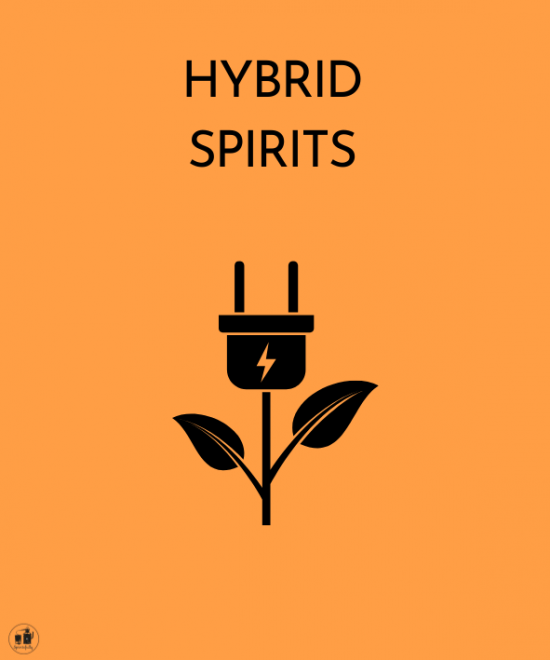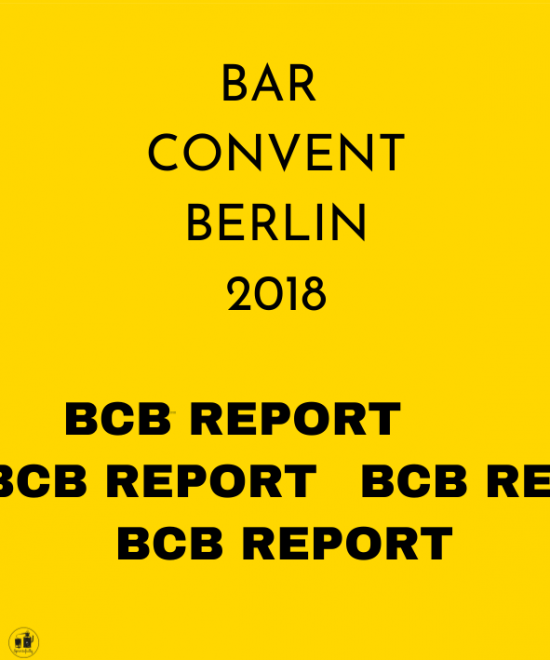December 2018, Spiritsfully got lucky and met with Derek Sandhaus a few days after BCB 2018 in Berlin, We talked Baijiu evangelism, biais and stereotypes and how unlearning anything you know about distillation can help you to understand distillation better.
Ready?
What’s the biggest misunderstanding or misconception you face as a Baijiu Evangelist?
When I’m told “this is a rice wine, right?” whereas is is more likely sorghum and this has nothing to do with wine.
When they say “I had this baijiu and i thought that was really bad so i don’t like baijiu” when in reality there is probably many baijiu this person would like. It is just a misunderstanding that the term baijiu refers to many different spirits over a wide geographic region not just the one thing they tried that one time.
…. That would be like saying I don’t like wine when you had once a glass of wine
Exactly!
That’s a very good comparison
That’s also a nice way to help people enter into the category to be able to explain that fact.
Talking about East and West.
I have another question, I have the impression that western spirits are more spread out in China, and I was wondering, if it had any effect on the type of baijiu there is or they drink or I am totally overestimating the diffusion of western alcohol within China?
I don’t think there is a big influence of western alcohol in the Chinese market today. But i would say their understanding of western alcohol is very limited and quite shallow, like for example there is a lot of vodka and a lot of whisky and brandy, like cognac that is consumed in China but beyond one or two major international brands most Chinese consumers don’t know these categories, because they are not being consumed in a cocktail bar settings. They’re more consuming these at night club karaoke, when they gonna be mixed with green tea, or sprite. So there is not a very well developed understanding of western spirits. There are many there but there is not the connoisseurship that we find to be fairly developed in Europe and the United States.
Maybe it’s not changing how Chinese appreciate baijiu but does that influence on experimentation that are being done these days?
Absolutely!
I made some notes of some weird things that are happening in Baijiu.
Because it’s true that be the places where baijiu is served is usually in restaurant or banquet halls so it is more a ceremonial drinks for festive occasion and it is always served with food whereas western alcohol is served in night light, bars, clubs, almost exclusively. Baijiu producers are working right now to change the product to make it more appropriate for these non traditional settings, bars and night clubs
So I’ve seen a lot of flavored baijiu that are gonna be similar like to ready to drink like alcohol pop stuff like Bacardi breezes and Smirnoff ice. (…) They’re also making things like barrel-aged baijiu. There are one or two of those that I’ve seen. They’re trying to make it more like a whisky.
But for me I think the weirdest thing that I have seen is probably the baijiu that has been modified for western consumption. There were a few brands that came out in the last 5 to 10 years mostly in the US and Europe, they try to break baijiu in the international market, by taming it, by making it more filtered and less like authentically baijiu.
For me it’s kind of weird as the great joy and thrill at drinking baijiu is that you are drinking something that is very different than you would get anywhere else. In a try to make it -for a lack of a better word- let’s day Chinese you’re missing out on what is making it special.
Isn’t it what we call globalization ? No more unknown territories?
You’re probably right, I’m just maybe a bit of a purist. Yeah.
And you’re witness of a transition.
At the same time baijiu itself has always been evolving too, right, I remember reading the history of baijiu on your website and it already gave me the impression the taste kept involving, no?
It may be that this transition now is tremendously fast and more perturbing?
Yes and all those notions like Eastern or Western alcohol, Chinese or German, French alcohol this is all, maybe it is based on a myth. There is nothing that has been developed cut off of the rest of the world. Of course they are not. There’s been huge influences on chinese alcohol from other alcohols from other country and especially the Middle East through the Silk Road.
Anytime you’re talking about a national product you have to understand the influences that have changed the way that country thinks about taste and flavors and the ingredients too.
The most common ingredient in baijiu is sorghum and it is an African grain that came to China through India and wasn’t really popular in China until 400 years ago. So is it still a Chinese drink if is is using ingredient that came from else where. I don’t know.
Talking about Silk Road, do you have other spirits you really would like to try or know more about?
Yes I’m really interested to know more about Soju. A Japanese spirit. I think they’re made in a similar way to Baijiu where they are produced with natural harvested yeasts and mold but their techniques is slightly different, they developed the last hundred years on a different path. So i think knowing more about them would help me to understand more baijiu, and show me some other things that are possible within the same universe of drinks.
You’re talk about SO SHU and not SO JU right?
Yes because SO JU is from Korea. And actually the old name for Baijiu is SAHU SHU, same word three different languages.
It is especially interesting as on the internet there is a lot of those soju vs baijiu thing. And I never know what to think about it.
The literal translation of all those words is burnt alcohol.
So its kind of several hundred ofyears old eastern word for distilled spirits.
Like brandy.
In a way. Yes. But for me in the question SOJU vs. BAIJIU the answer is baijiu.
And the reason that I say baijiu is more interesting than soju as a category of spirit is because up to 100 years ago soju and baijiu, at least certain types of baijiu, were very similar, made a similar way. What happened in South Korea in the 1950’s is that they experienced a pretty serious famine so the gouvernement passed a lot of laws dictating how alcohol coul be fermented or distilled. The first thing they did was to decide you couldn’t make spirits from grain so they started making their liquors for sweet potatoes and tapioca. And the law said you have to distill all the alcohol up to 95% abv. And the way you can do that is with a column still which essentially just turned your drink into a vodka, and takes any really defining flavors and characteristics out.
Essentially most of the soju today are, no all of it but the most of it, is just gonna be watered down tapioca vodka. Which isn’t that interesting to me. On the other side, I know that there are within Korea several distilleries that are trying to name small batches more traditional style soju, and that stuff is very interesting to me. I’d like to know more about that.
(…)

Nothing to do with what we talked earlier but also to understand better what is the relationship between a country and its spirits. Is there a thing such as baijiu tourism?
(…) Most of the distilleries have visitor centers or museums but there is no tour as such. (…) There is nothing like a the Bourbon Trail (…) Very few Chinese people aside from a weirdo like myself plan trip around to see distilleries.
(…)
Was is the hardest thing you had to do as a baijiu evangelist ?
It was quite challenging conducting research while i was still living in China.
(…) It was quite difficult because I would try to plan trips where I would go and visit several distilleries in different parts of the country, I would call up a distillery and say “I am an American who is writing about baijiu and like to come and visit your distillery because I’m writing a book about it for an international audience” and most of the distilleries were really confused.
Many of them don’t export their product outside of China so they didn’t get what the point of meeting with a foreigner was. Maybe for many of them there were no point of meeting with a foreigner. And also there is this attitude in China that foreigner can’t handle baijiu, it’s too strong for them. A lot of people I would introduce myself to them and they “hey, I would like to write about your product for an international audience” and they would say “foreigners don’t like baijiu” and there were this disconnection when I was telling them that I actually liked baijiu and they were telling me back “no” …
Like “you don’t know what you’re saying”
(Laugh)
So it was weird but I’d say the biggest challenge while trying to spread knowledge about baijiu is misconceptions. To understand baijiu you really have to change a lot of understanding or ideas that people have about what is alcohol and how it is made and taste.
So a lot of people who work in the alcohol industry who are very much expert in alcohol, who have studied it for many years have a very set understanding how it all fits together. When you start talking with them about baijiu -for a lack of a better word- they do not anything because it is not made like alcohol should be made.
So it was weird but I’d say the biggest challenge while trying to spread knowledge about baijiu is misconceptions. To understand baijiu you really have to change a lot of understanding or ideas that people have about what is alcohol and how it is made and taste.
So a lot of people who work in the alcohol industry, who are very much expert in alcohol who have studied it for many years have a very set understanding how it all fits together. When you start talking with them about baijiu, for a lack of a better word, they dont know anything because it is not made the way they think alcohol should be made, the way they understand that alcohol is made. So you really have to, when you’re dealing with an audiencee which is fairly knowledgeable about alcohol, you have to kind of break down what they believe and start over. And a lot of people are pretty resistant. Nobody likes to feel like they don’t know something.
Plus it is not not so easy to understand the fermentation/conversation and distillation process.
Yes. I think I was quite lucky as I started writing about baijiu as someone that had been studying China and not alcohol beforehand so when I was learning about it I wasn’t trying to fit what people were telling me into pre existing ideas I would have had about how alcohol is made. I was just learning from them telling me how they make their products. And then I’ve learned how the other alcohols are made. (…)
Tell me about the first baijiu you tried ?
I dont know but if I had to guess it would probably be RED STAR as it is the kind of baijiu that is available everywhere in China and it is very cheap. So i think the first baijiu I ever tried was a baijiu a friend of mind brought to a party just to make everyone who just arrived in China tried it, kind of to laugh at them (…)
Before you had no previous passion for other spirits?
Before I liked whisky, I lived in Shanghai for about 5 years before I moved to ChengDu, in Sichuan where i made a proper study of baijiu and so my first 5 years in China I was drinking mostly whisky, and within whisky probably single malt scotches for that was something you could pick up at duties frees in the way in and out of China. (…)
Do you think now that this baijiu experience has changed the way you enjoy other alcohol ?
Definitely!
I think I’m much more open to the stranger and unusual flavors. Right after I left China I moved to argentina where they drink a lot of Italian bitter drinks like Campari Cynar, Fernet. I didn’t have any exposure to any of these things before I moved there but it made sense to try. (…) The point is the same, you have a lot of different flavors blended and balanced together in the way that the whole is greater than the sum of its parts.

Last, last question. Is there a question that you would have liked to be asked ?
Or is there a question you are never asked but you would actually like to say something about it?
(…) A question i don’t get asked often is how I like to drink baijiu.
I go to liquor conferences and cocktails bars places where you do a very controlled tasting setting but for me my favorite way to drink baijiu is the traditional way. When you’re out at a lively loud restaurant with a bunch of different people and you’re in a controlled setting that goes out of control. When you’re drinking together with food, you’re drinking a lot of baijiu the mood is getting friendly and merry. Very jovial. It’s really wonderful (…) actually it gives you an emotion to go along side with the flavors. And it is very joyful. That a missing piece about drinking baijiu in a controlled setting. And also with food it gives you another combinaison of flavors. You can have fun combinaisons of baijiu when you drink it as a cocktail but the way it was made to be consumed is with very spicy Chinese food. And if you dont get the experience of getting great Chinese food without baijiu and you don’t get the experience of drinking baijiu without spicy food. It is for me the missing pieces that i dont get by drinking baijiu in a non traditional setting.
Was a wonderful way to end that conversation. Thank you Derek. I hope we helped our curious readers to have tools to apprehend a new spirit category!

CHECK DRINK BAIJIU All the images of this post are coming from the website of Ming River, Drink Baijiu.



